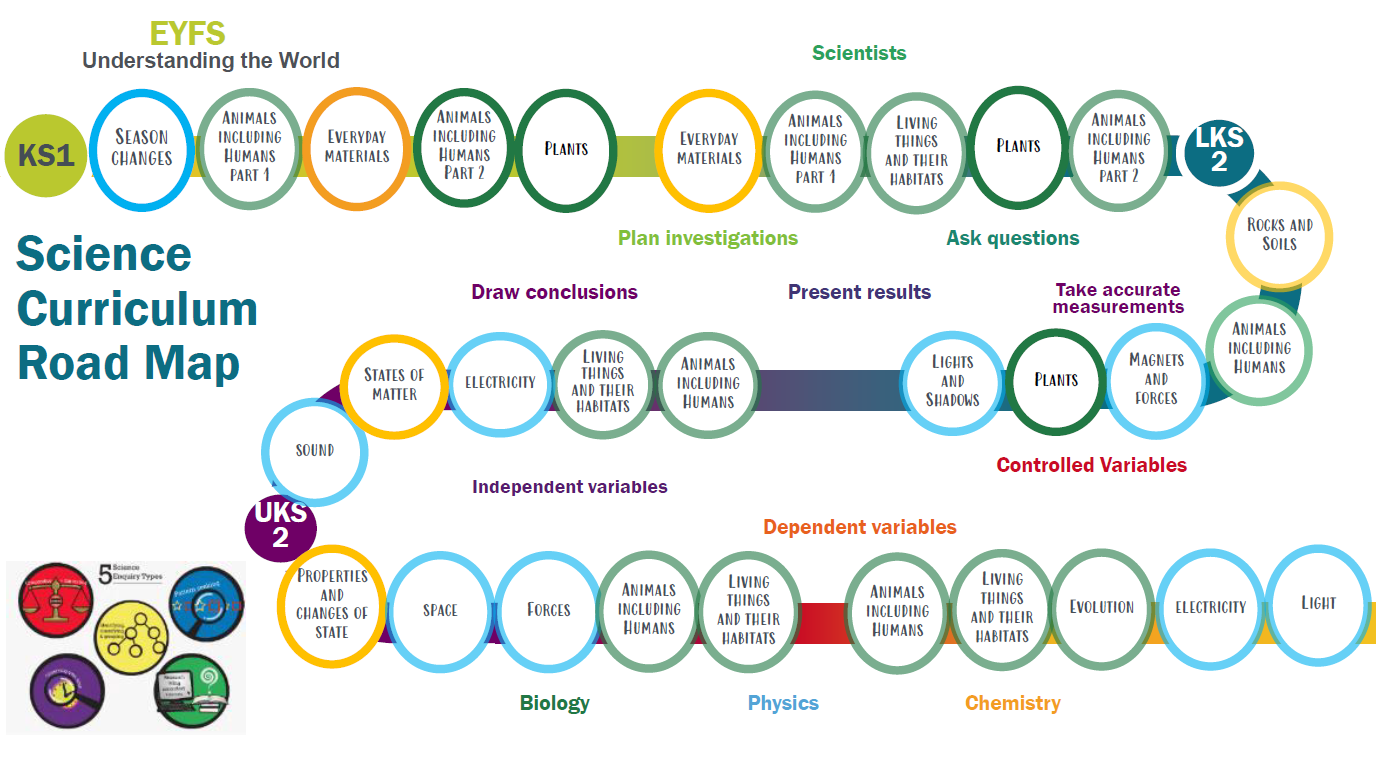Asquith Primary School- Science Overview
Growing to succeed - Science The Asquith Way
'Science consists of observing the world by watching, listening, observing, and recording. Science is curiosity in thoughtful action about the world and how it behaves.'
NASA
'Science is good, we learn about the elements.'
Asquith Pupil


Our science curriculum at Asquith Primary School is enquiry based, inclusive and meets the needs of all learners. We build strong foundations in our EYFS, support and challenge pupils on their journey through our school, ultimately ensuring that they are equipped with the skills and knowledge that they will need to succeed in the future and be citizens of tomorrow’s world. Our curriculum is underpinned by 5 golden threads: High aspirations for all, Fostering resilience, Embedding key skills, Respecting diversity and Creating global citizens- with the intent that all our children have the opportunity to grow and succeed as scientists.
Intent
At Asquith Primary School, we encourage children to be inquisitive. The Science curriculum fosters a healthy curiosity about our universe, we recognise the importance of Science in every aspect of daily life and we give the teaching and learning of Science the prominence it requires.
We believe science encompasses the acquisition of knowledge, concepts, skills, and positive attitudes which enable all children to grow and succeed by:
- Developing pupils’ understanding of the key knowledge within each unit and across each year group. The key knowledge identified within each year group is underpinned by the Early Years Curriculum and the National Curriculum.
- The development of scientific disciplinary skills are progressive throughout the school. These ensure systematic progression. Which are in accordance with the Working Scientifically skill expectations of the National Curriculum and underpinned by the five enquiry types: research, pattern seeking, comparative and fair testing, observation over time and identifying, classifying, and grouping.
- Opportunities for experiential learning. The curriculum is designed to ensure that children can develop their scientific knowledge and skills through practical experiences, using equipment, conducting experiments, building arguments, and explaining concepts confidently. This is enhanced by visitors, workshops, and experiences within the local community.
- Children’s resilience is built through opportunities for them to experiment with possible solutions and ways of answering questions. This in turn embeds the understanding that to FAIL is a First Attempt in Learning as not all of their ideas are successful.
- Developing aspirations through the study of other scientists from a diverse range of backgrounds and places in history, enabling children to explore science within the environment, as well as developing an understanding of the ever-changing world we live in.
Implementation
Teachers create a positive attitude to scientific learning within their classrooms and reinforce an expectation that pupils can achieve ambitious standards in science. Each unit of work’s core body of knowledge is systematically taught, revised, and revisited to ensure that learning is committed to long-term memory.
The focus on ensuring that children grow to succeed is implemented by:
- The science curriculum encompasses the main three strands of science (Biology, Chemistry, Physics) with Working Scientifically skills underpinning all science lessons.
- Knowledge is organised into themes where related content is taught under one topic. This encourages children to see connections between previous learning, current learning, and future learning, both within science and the wider curriculum.
- Units of work build progressively on existing knowledge which is checked at the beginning of each unit and opportunities to embed knowledge and skills are offered through collaborative activities, individual practice and Intervention.
- Problem solving allowing children to apply their knowledge, ask questions and find answers for themselves.
- ‘Working Scientifically’ skills are embedded into lessons to ensure that skills are systematically developed throughout the pupils’ school career and new vocabulary and challenging concepts are introduced through direct teaching.
- Reading is a key element of science, allowing the children to ‘Read to Learn’ and gives them access to subject specific vocabulary. It also allows the children to explore the why and how of specific scientific thinking, and where appropriate, explore the work of other scientists from a diverse range of backgrounds.
- Children engage in a wide variety of experiential and exploratory learning activities to complement and broaden the curriculum. This also includes working collaboratively. Children are encouraged to make connections and record their learning in a variety of ways.
Through this approach, our children learn to become practical problem solvers whilst being resilient, responsible, competent, confident and creative scientists.
Impact
The successful approach to the teaching of science at Asquith results in a fun, engaging, high-quality science education that improves children's science capital, resilience, knowledge and skills, further promoting an interest in STEM that continues after they leave our school. Children have the understanding that science has changed our lives and that it is vital to the world’s future prosperity. It is an expectation that children will develop their use of scientific vocabulary and understanding even from the earliest ages.
Linked Texts:
EYFS- The Extraordinary Gardener by Sam Boughton
KS1- Somebody Swallowed Stanley by Sarah Robert & Hannah Peck
KS2- Izzy Gizmo and The Invention Convention by Pip Jones and Sara Ogilvie
KS2- Clockwork by Philip Pullman
Places to Visit
Our local area is rich with places you can visit to support the learning of Science. Here are a few suggestions:
Leeds City Museum ( free of charge) https://museumsandgalleries.leeds.gov.uk/leeds-city-museum/
Oakwell Hall (free of charge) https://www.kirklees.gov.uk/beta/museums-and-galleries/oakwell-hall.aspx
Tropical World https://tropicalworld.leeds.gov.uk/
Eureka, National Children's Museum, Halifax https://www.eureka.org.uk/
National Science and Media Museum, Bradford https://www.scienceandmediamuseum.org.uk/
Cliffe Castle, Keighley https://bradfordmuseums.org/cliffe-castle/





